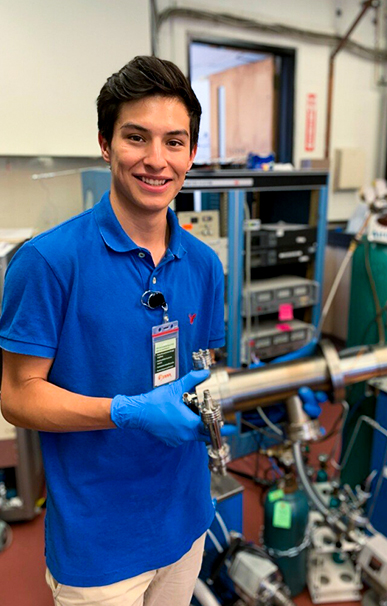Cristian Ruano Arens ’22


Chemical and Biological Engineering
Investigation of Ash Removal from Fusion Reactors via Palladium Membranes
Certificate(s): Materials Science and Engineering
My internship involved helping to develop processes that could extend the usefulness of fusion as a clean-energy source. The combination of deuterium and helium-3 is being studied as a potential fuel for fusion reactors as it does not produce high-energy neutrons. However, deuterium can react with itself and fuse to produce a tritium atom, which can subsequently fuse with another deuterium atom to produce a high-energy neutron that can damage reactor walls and weaken plasma strength. Thus, tritium must be removed from the plasma. My project explored palladium foil as a possible membrane material to separate hydrogen and helium isotopes and remove tritium ash. My primary activity was to service the high-vacuum chamber, including venting the chamber and manually adding and removing various machines such as plasma sources, mass spectrometers, and a cylindrical mirror analyzer. After this internship, I have a better understanding of the functionality and fragility of high-vacuum chambers, plasma sources, and mass transport. My project has exposed me to the field of surface analysis and I am now considering studying surface science or plasma-materials interactions in graduate school.
2019
New Energy Future
Princeton Plasma Physics Laboratory - Princeton, New Jersey
Samuel Cohen, Director, Program in Plasma Science and Technology, Princeton Plasma Physics Laboratory; Bruce Koel, Professor of Chemical and Biological Engineering, Princeton University; Shota Abe, Postdoctoral Research Associate, Chemical and Biological Engineering, Princeton University



